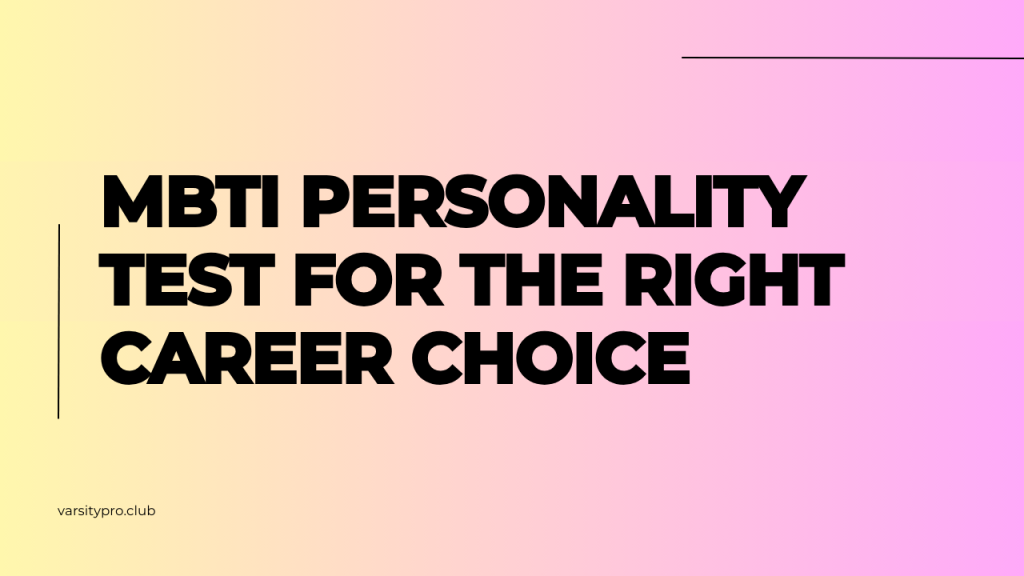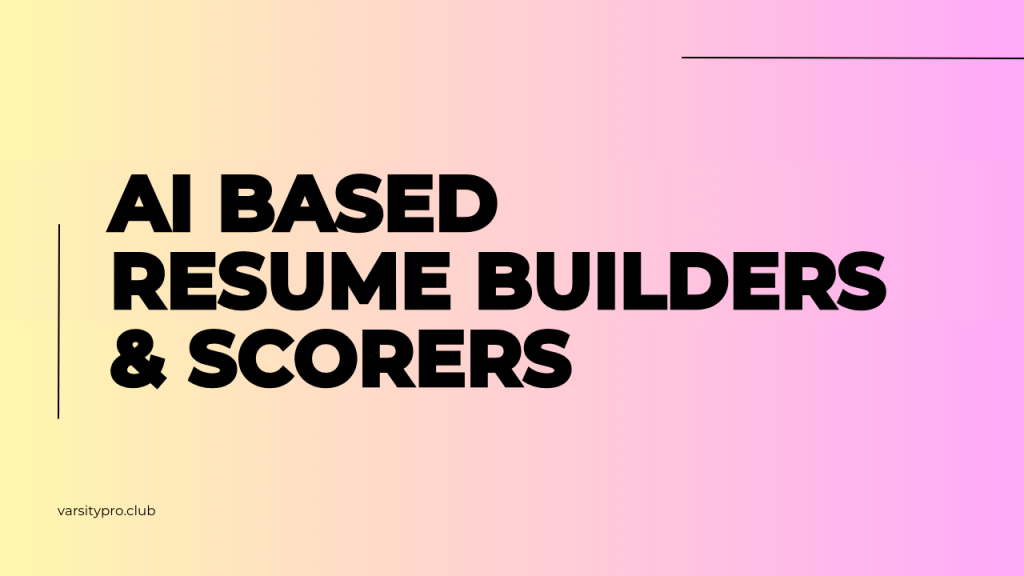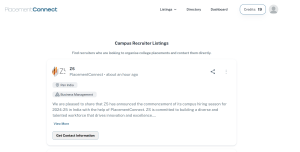In the quest career fulfillment, the Myers-Briggs Type Indicator (MBTI) stands as a beacon of insight, offering individuals an understanding of their unique preferences and tendencies. Rooted in the theories of renowned Swiss psychologist Carl Jung, the MBTI Personality Test delves into four fundamental psychological functions: sensation, intuition, feeling, and thinking. Jung believed that one of these functions tends to dominate an individual’s experience of the world, a concept that laid the foundation for developing the MBTI.
In the mid-1900s, Katharine Cook Briggs and Isabel Briggs Myers, crafted the test during World War II. Inspired by Jung’s personality theories, their goal was to modernize and apply these principles to provide individuals with a deeper understanding of themselves. Over the years, the MBTI has undergone refinements, becoming a widely embraced tool utilized in diverse fields such as leadership training, career exploration, relationship counseling, and personal development. It’s estimated that about 80 million people worldwide complete a personality test each year and that this industry will increase to $6.5 billion by 2027.
The EU Myers Briggs Company rightfully asserts that the MBTI is “one of the most widely used personality theories in history,” emphasizing its pervasive influence. From aiding in career exploration to facilitating conflict management and shaping effective business practices, the MBTI has proven to be a versatile and reliable instrument.
What Do Personality Tests Measure?
The MBTI delves into four key dimensions of personality, shedding light on our preferred ways of interacting with the world. Those four dimensions are:
Energy Direction (Introvert/Extrovert): The first dimension explores how we direct our energy. Are we more inclined towards extroversion, drawing energy from external interactions, or introversion, finding energy in the solitary reflection? Unraveling this aspect helps illuminate the source of our vitality and where we thrive the most.
Information Gathering (Intuition/Sensing): In the realm of information, the MBTI Personality Test examines our preferred approach to gathering insights. Do we rely on sensing, focusing on tangible and concrete details, or lean towards intuition, seeking patterns and possibilities in the abstract? This dimension uncovers our unique cognitive style in processing information.
Decision-Making (Thinker/Feeler): When it comes to decision-making, the third dimension explores our tendencies. Are we more inclined towards thinking, relying on logic and analysis, or feeling, prioritizing harmony and empathy in our choices? Understanding this aspect unveils the lens through which we navigate the complexities of decision-making.
Interaction with the Outer World (Perceiving/Judging): The final dimension revolves around how we deal with the external world. Do we embrace a judging approach, preferring structure and organization, or a perceiving approach, welcoming spontaneity and adaptability? This dimension provides insights into our strategies for engaging with the external environment.
Why Do Companies Use MBTI Personality Test?
MBTI Personality Test are used by 80% of Fortune 500 companies to enhance their talent acquisition and gain overall insights into their employees. In essence, the MBTI Personality Test unveils the unique tapestry of an individual’s personality, shedding light on their dominant psychological functions. By understanding whether sensation, intuition, feeling, or thinking takes precedence, individuals gain valuable insights into their inherent strengths and preferences. This self-awareness becomes a cornerstone for career direction, providing a roadmap to align passions and skills with suitable professional paths.
Also Read
Whether at a crossroads in your career journey or seeking personal development, the MBTI offers a tailored approach. Its applications extend far beyond the confines of a traditional personality test, permeating various aspects of life. Through the lens of the MBTI, individuals can unlock a deeper understanding of themselves, paving the way for informed career decisions, improved interpersonal relationships, and enhanced personal growth. According to a report by Randall and Ken titled “Validity and Reliability of the Myers-Briggs Personality Type Indicator”, ” the MBTI is used extensively in human resource management and is one of the most commonly used instruments in higher education research and counseling.” Personality tests provide HR departments with a deeper understanding of candidates’ traits and characteristics beyond their qualifications and experience. This enables recruiters to make more informed hiring decisions, ensuring better alignment between candidates and organizational culture.
Companies can use the MBTI to inform strategic workforce planning. By understanding the personality preferences of their workforce, organizations can make informed decisions about team structures, succession planning, and talent development initiatives. A 2017 Society for Human Resource Management report further detailed that 32% of HR professionals use personality tests to vet executive roles, and 28% use them for middle-management positions. Teams conscious of each member’s MBTI type can strategically allocate tasks and leverage individual strengths, leading to increased overall team performance.

How Do MBTI Personality Test Benefit Universities?
Improved Academic Advising:
Personality tests assist academic advisors in gaining insights into students’ learning styles, preferences, and potential career paths. This understanding allows for more tailored academic advising, helping students make informed decisions about majors, courses, and future career paths. Studies from the National Academic Advising Association (NACADA) reveal that universities integrating data-driven academic advising systems experience a 20% increase in student satisfaction with advising services.
Enhanced Career Counseling:
Universities use personality tests as valuable tools in career counseling services. By assessing students’ personalities and interests, career counselors can provide personalized guidance on potential career paths, increasing the likelihood of students finding fulfilling and suitable employment upon graduation. The Journal of Career Development published a study indicating that students who received academic advising incorporating personality assessments were 30% more likely to enter careers aligned with their interests and personality types.
Alumni Engagement and Networking:
Universities leverage personality tests in alumni engagement initiatives. By understanding the career preferences and strengths of alumni, institutions can provide targeted networking opportunities, mentorship programs, and career development support, fostering a strong and engaged alumni community. Studies conducted by the Council for Advancement and Support of Education (CASE) show that universities incorporating the MBTI Personality Test in alumni engagement initiatives experienced a noteworthy 25% increase in alumni participation in mentoring programs and networking events
Strategic Workforce Planning for Staff:
Personality assessments are not limited to students; they can also benefit university staff’s workforce planning. Understanding the personality preferences of faculty and administrators can inform hiring practices, team dynamics, and leadership development within the university. The Global Talent Management Consortium reported that organizations utilizing the MBTI Personality Test for workforce planning experienced a 15% improvement in global talent management strategies, as they were better equipped to understand and leverage the diverse personalities of employees across different regions.
Read More
Benefits of VarsityPro’s Personality Test
VarsityPro’s personality test offers a transformative tool for individuals, students, and universities alike, revolutionizing the approach to personal and academic development. For individuals, the test provides invaluable insights into their unique personality traits, preferences, and strengths, empowering them to make informed decisions about their academic and career paths. By understanding themselves better, individuals can navigate challenges, leverage their strengths, and pursue opportunities that align with their natural inclinations.

For students, the personality test serves as a guiding compass, facilitating academic advising, career counseling, and personal growth initiatives. Universities benefit from VarsityPro’s personality test by enhancing student support services, optimizing academic advising practices, and fostering a more inclusive and engaged campus community. With VarsityPro’s innovative approach to personality assessment, individuals, students, and universities alike can unlock their full potential and thrive in today’s dynamic educational landscape.





